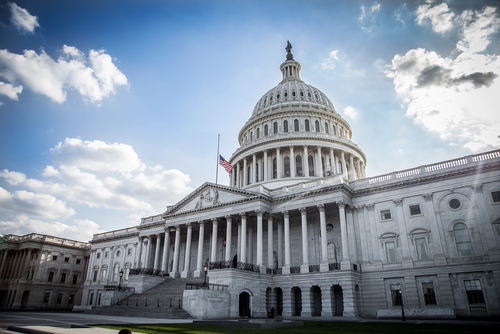
The House of Representatives passed the five-year Federal Aviation Administration (FAA) Reauthorization Act of 2018 last week, the first long-term FAA reauthorization bill since 2012.
The bill, H.R. 4, provides funding to improve America’s competitiveness in the global aviation sector, strengthen passenger protections, ensure the safety of the system for the traveling public and investment in airports. The legislation passed by a vote of 393-13.
House Transportation and Infrastructure Committee Chairman Bill Shuster (R-PA) said, “While I would have liked this bill to have included the significant reforms to the management of the nation’s air traffic control system I proposed in earlier legislation, H.R. 4 does include many other important reforms that will help job creators lead in a competitive global marketplace for aviation, improve our airport infrastructure in large, small and rural communities, and improve air travel for millions of Americans.”
According to a summary of the bill, the measure provides stable funding for the Airport Improvement Program (AIP), which issues grants to public use airports for planning and development purposes. It also
removes unnecessary restrictions on the Passenger Facility Charge (PFC), allowing airports to more effectively finance projects that improve airport infrastructure and benefit the traveling public.
Communities also were provided with a means to better prepare for, respond to, recover from, and mitigate against disasters.
The House of Representatives passed by a vote of 393 to 13 the five-year Federal Aviation Administration (FAA) Reauthorization Act of 2018 last week.
The bill provides funding to improve America’s competitiveness in the global aviation sector, strengthen passenger protections, ensure the safety of the system for the traveling public and investment in airports.
Communities also were provided with a means to better prepare for, respond to, recover from, and mitigate against disasters.
“We cannot afford to continue spending tens of billions of dollars on disasters like we did last year,” said U.S. Rep. Lou Barletta (R-PA), who serves as chairman of the Economic Development, Public Buildings, and Emergency Management Subcommittee. “It is critical that America have a better system in place that saves lives and taxpayer dollars when disaster strikes. The Disaster Recovery Reform Act will do just that and save the federal government $4 to $8 on the back end for every $1 spent on the front end.”
The bill now moves to the Senate.